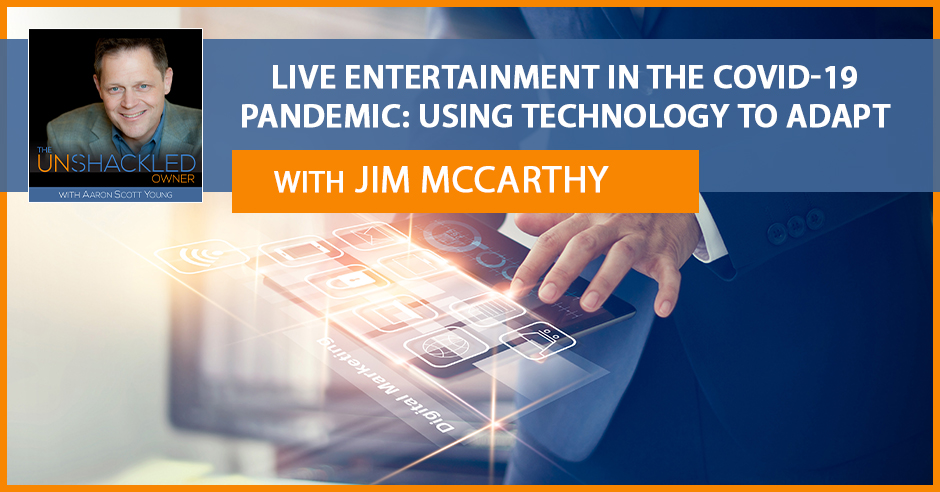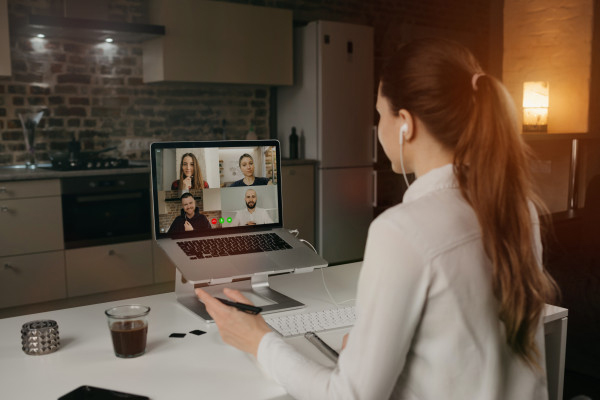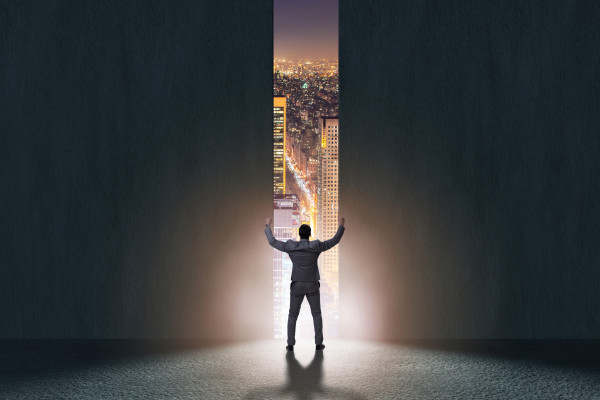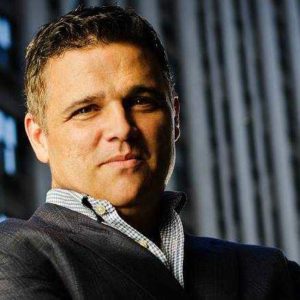
In the crazy world that we’re thrust into, it can be difficult to even think about success when almost everyone just wants to get by. Joining Aaron Young in this episode is eCommerce veteran Jim McCarthy, who will share the things he has learned in adapting to an industry that’s been incredibly hit hard—live events and live entertainment. He talks about the negative impacts of the COVID-19 pandemic on the industry and how much they are discovering the tremendous experiences they can create if done right through the digital experience. From BTS’ online concert to learning the strategies to connect with the audience digitally, Jim and Aaron cover them all. Whether you are in the entertainment industry or not, this conversation proves to be just as helpful and valuable to everyone. Follow Aaron and Jim to learn more about not only surviving this pandemic but thriving as well through the use of technology.
—
Listen To The Episode Here
Live Entertainment In The COVID-19 Pandemic: Using Technology To Adapt With Jim McCarthy
It’s great to be back here with you again with another great guest, another great conversation. You are going to have a blast. This show is a reminder to help people who are building a business, who have big dreams and goals to give them the best practices, the tips, I don’t want to say hacks but the formula that will help them to be able to actually achieve the goals that they have, whether it’s a financial goal, a growth goal, an acquisition goal or you want to sell your company. You don’t want to be a slave to your business. You want a business that works harder for you than you work for it. That’s what we talk about here. That’s what we’re going to get, only if you come in, you focus, you turn off your phone, you grab something to write with and you close the door and you get serious about your business. People that do things casually, they’re poor. People that do things intentionally, they’re the ones who have success.
—
Our guest is Jim McCarthy. Jim started his career in the eCommerce business. We know that’s a huge business, but he started back in ‘97 when nobody knew there was anything called eCommerce. He’s got almost twenty years’ experience doing live events. He has sold tens of millions of tickets to events, to millions of dedicated buyers. He co-founded TEDxBroadway. He advises entrepreneurs. He’s co-founded Goldstar Events and Stellar Tickets. He’s the CEO of both those companies. His mission is to enable artists and organizations to create high-quality online content, help them find success in this new, insane, crazy era that we’ve been shoved into, whether it’s through COVID. I’m going to ask you about this, and I’m going to go off on a tangent. A lot of people are freaking out about COVID-19 and how that’s changed everything. We have a new normal. Let me be clear. There is no such thing as normal. There’s only new because things keep changing.
When Jim started his business in ‘97, just like when Jeff Bezos started his business in ‘95, he had no clue what it could grow into. We start looking for things. We figure out how we can take whatever we’ve got to offer into the market and take whatever is the best practices or some cool ideas somebody else had, and learn from their experience, so we can leverage our thing. There is no new normal, there’s just an evolution of how we do things. If you try to live in what you were doing last year 2019, I promise you, you’re going to get left behind. We’re going to talk about Jim McCarthy and what he’s learned in adapting to an industry that’s been incredibly hard hit, which is live events and live entertainment. Hi, Jim. Thank you for being here with me.
Aaron, it’s great to be here. Thank you.
It’s great to have you here. I love the stuff you’re working on. A lot of us have bought online tickets. I’ve had great experiences buying things online for tickets. I’ve also had frustrations because I’ve done things where I didn’t exactly know how to use a stub hub or whatever. I went to a baseball game. I wanted to take my son to see the Yankees play in their old field before it was torn down the next week, or at least they were moving to the new facility. This was the last week the Yankees were playing in the old field and we got box tickets. My son and I flew out there. He’s a huge Yankees fan. We had a great time in New York. We showed up, we took the subway up. We ate at a little restaurant right inside the stadium. We go and we find our box.
We’re waiting for the Yankees to play and it started to rain a little bit. Then they’re rolling out the tarps on the field and they said, “You can get a refund or you can come back tomorrow for a game.” We were flying out the next day. I didn’t try to send my tickets back. I kept them for the memory, but I didn’t know how to do it. The fact that you’ve conquered and dominated an industry that is complicated, it’s technologically-challenging. It’s lots of people spending money on stuff, and a lot of times big money for them to attend a big event. It’s a super cool industry and I want to hear all about that. First, I want to find out a little bit more about you. A lot of you may be reading, but I’m looking at Jim here. I won’t say that it’s like looking in a mirror, but I have to say we’ve got our hair slicked back and our gray beard showing and our T-shirts on. I’m thinking this must be the new way because it used to be that I would wear a shirt and tie and a jacket when I do interviews. We’ve stumbled into this new normal.
I’ve never gone to work in a jacket and tie partly going back to the eCommerce thing. That’s always been casual.
Where did you grow up? What was your childhood like? Were you born with a silver spoon in your mouth? Were you on the wrong side of the tracks? What’s your story?
I was born in Little Rock, Arkansas, but I only lived there for a few months because I was an Air Force kid, we somehow came to a stop in South Carolina when I was about five. As far back as I can have any meaningful memories, I grew up in South Carolina. There’s a big Air Force Base there called Shaw in Sumter County. I grew up around a combination of Air Force kids and people who lived in that area. My mother still lives there and grew up there and went to the very unheralded country schools. I didn’t know what was different, but it was not the place that you would say that this is the launch pad for success typically. I wouldn’t go so far as to say it was the wrong side of the tracks, but we didn’t have any tracks. I don’t know. There were no tracks.
This is a regular place. You grew up in South Carolina in a regular family and a regular small town?
Yeah, more or less. I don’t know what a regular family is anymore, but it certainly wasn’t Leave It To Beaver, that’s for sure. There were many bumps along the way, but on the other hand, a lot of things kept me on the straight and narrow too. My mother in particular had a very firm idea about how we should take education seriously and conduct ourselves like decent human beings. I think that sees us through a lot if we have those kinds of people guiding us along.
I know from your bio that you have a very prestigious education. Especially when you’re looking forward, when you’re looking ahead to places you want to go to school, you went to Harvard, right?

Adapting To COVID-19: Some people see that there are certain places where the treasure is hidden. Sometimes in life, you realize that anything you want is inside a certain thing.
Yeah, for undergrad.
That’s one of the ultimate goals for people all over the world is to attend that university. What did you learn as a kid, as a teenager? You said your mom talked about the importance of education, but what did you personally learn when you were 13, 14, 15 years old that put you in a position to attend Harvard?
I look at it this way. There are people who see that there are certain places where treasure is hidden. I remember hearing the story about an American sumo wrestler who went to Japan and became a grand champion. He was very successful. The way that it happened, and this is Akebono, he’s 6’8”, 450 pounds, was working in a hot dog stand when a Japanese sumo, what they call a stable owner came and said, “What do you want in life? You don’t have to tell me, just imagine what you want. I’m telling you that inside a sumo ring is everything you want.” Akebono, who wasn’t even called Akebono at the time said, “Tell me more.”
Sometimes in life, for certain people, you realize that anything you want is inside a certain thing. For me, I don’t know how, maybe it’s with my mother’s guidance. By seeing largely the opposite thing play out in life around me, I realized that for whatever reason, I was good at school. I could do it from an early age. It wasn’t hard for me to get good grades. At some point when I was 10 or 11 or 12 or whatever, I realized that there was a treasure in there that I could get what I wanted out of it. What I largely wanted was more options. I wanted to open up the world for myself and for the other people that I cared about. I took that seriously all through middle school and high school where it seemed like, “If I can devote the energy to doing the things that put me in a place, whether it’s Harvard or wherever, all of a sudden a kid like me with a pretty limited view of the world suddenly has a vastly expanded view of the world, then I’m going to do this thing.”
Folks, that’s a huge gold coin right there. He said, “I figured out what I was good at. I figured if I put in the effort, that I would be able to discover the treasures. I would be able to get the treasure that I could see in the place that I knew I had talent.” I’m the other way around. I was bad at school. I learned early on this is not going to be my route because I don’t seem to thrive in this environment. My best friend, Harvard MBA, was great in school and has had great experience and great relationships because he pursued it. We had different tracks. It doesn’t matter exactly which track you get on. The idea is what are you good at, and are you willing to put the effort in to find the treasure? That was such a beautiful way of putting that. I needed to stop you and call attention to that because it was great. You did the right things. You did well in school, you did your extracurriculars, you got accepted into Harvard. Did you move from South Carolina to Boston or Cambridge?
Yeah.
This is Cambridge for undergrad, right?
Yeah. I’ll tell you going from a small town without a lot to do to Cambridge and Boston, it was fantastic. I loved it so much that it distracted me freshman year. I loved it so much that I didn’t do all that well freshman year in my classes. It was great to be in a place where there was culture, fun, food and people and endless students. My freshmen dorm is, for those Harvard people out there, Hollis Hall, which is in Harvard Yard. It was built in 1720 or something like that. During the Revolutionary War, George Washington and his officers slept in Hollis Hall in the Battle of Bunker Hill and that whole part of the war. I remember thinking I’ve basically grown up nowhere and now I’m somewhere.
There’s history and DNA in these walls of George Washington, Alexander Hamilton and all of his group that would have been together.
It’s no sight to where I grew up, but suddenly being the density of ideas, people, opportunities and history and stuff. It maxed me out.
Jim, think about the movie, Good Will Hunting. Good Will hunting was around Boston and around Harvard. Most of Will’s friends who were working construction did not have the experience that Will was getting invited into because of his intellect. Just because you’re in Boston doesn’t mean you’re having the experience, you’re discovering the treasure. You’re even knowing that George Washington slept in that hall. You can be right in front of opportunity and never know it if you’re not looking for it.
Keep going. This is my way, but I hope it’s okay, Jim. I love to interrupt and call things out because people think that somehow they can use an excuse for wherever they are because it’s easier for Jim McCarthy or Aaron Young than it is for them. To which I would say, no, that’s not true. It’s a matter of, are you looking for treasure or are you looking for a handout? Are you looking for treasure or do you want to be able to watch more TV tonight and get a paycheck? You’re going to get whatever you actually truly want to get. What you really want is what you’re going to get. The sumo guy found out everything he could achieve by success in the ring. You knew school was your way, so you did that and you figured out to get back on track your sophomore year.

Adapting To COVID-19: Good entrepreneurship and good business development are about understanding that you have a big role to play for not just yourself, but other people and providing that.
I righted the ship a little bit after that and got pretty serious about my English studying. I was an English major in college, which I’ve got to say, this goes along with many things about misconceptions about school these days. People talk about a degree like English or History or something as not practical, I’m here to tell you that is the wrong way to think about this. What I learned studying English was how to think, how to understand and how to communicate, how to communicate in the written word, how to communicate in the spoken word. I spent 3.5 years diving deep into some of the greatest thoughts that have ever been recorded on paper. If you think you can’t get anything out of that, that might be helpful to you later in life, I don’t know what you want.
They’re called books. Don’t be afraid.
I’m reading Lord Byron right now with Don Juan, which is great, but somebody like Lord Byron died 200 years ago, but I can teleport right into his mind anytime I want. If you can’t get something out of that, then you’re probably not thinking about it hard enough. I would go further and say that people who want to be so practical about college, think of it this way. When I was in college, the industry in which I’ve spent my career did not exist.
That’s the other thing that’s hard to explain to young people is that don’t get locked in to saying, “I want to be a doctor, lawyer and a chief.” Go and learn what you’re good at. This is what I believe. I’d be happy for you to take a counterpoint if you want. What I’ve learned is that if you quit trying to be a thing, a job title, and you spend time pursuing what you’re naturally good at, I don’t mean follow your bliss. If you’re organized, develop more skills around organization. If you’re mechanically capable, put more effort into learning how to build, make and create things. If you’re a writer, write every day. Pursue the things that are your natural genius. I promise you, working and moneymaking opportunities will show up if you’re great at basically anything. If you’re good at something, you can pick and choose how to apply your skill to an industry. Whereas if you say, “I want to be something very specific,” and then all of a sudden you get there and nobody needs that or there’s a glut of those, then what are you going to do?
I think it was Steve jobs in that one commencement he gave at Stanford where he talked about the problem with school is that it’s linear. Most people are going, “I’m going to take these classes and get this degree,” but then entrepreneurs are all about a bunch of disparate experiences and they see how to connect the dots in a new way. That’s only because they spent time being good at something, learning about a lot of stuff and then opportunity shows up and they go, “I know what to do with that.” You met a ton of people at Harvard. How much did your relationships at Harvard or Boston College or MIT or others that you met living there, how much of those interactions, conversations or even specific effort, meaning like Zuckerberg and his team all grew out of Harvard, how much of what you’ve been able to do now was able to be spring-boarded by things that conversations or people you met while you were in Boston?
In some ways, everything, and in other ways, it’s not like I can call people up and get pavers or whatever. It’s not like that. Funny you mentioned Facebook. I went to school with Sheryl Sandberg. She was Harvard ‘91 as well. She and I were on the same class at Harvard. I’m not the most successful internet person from the Harvard class of ‘91 by quite a stretch given her status.
There’s some more gold right there. Here’s the guy who’s very successful, and I’ve seen his whole bio. I know more than you guys have learned so far on the show. He’s saying, “I’m not the most successful.” My buddy who’s the founder of WebMD, Harvard MBA, he kicks himself against other classmates because he’s had great success. Folks, no matter where you’re aspiring to get, I promise you when you get there, there’ll be people further down the road. You’ll go, “Compared to them, I’m only $1 billion and Jeff Bezos is $200 billion.”
I think that whole comparison thing, you shouldn’t get too hung up on it. What you were saying is so true. When you do something, you’re good at and then you begin to build around that and you learn and you grow, that’s satisfying in its own right. If you start saying, “Yeah but that guy has got more money or that gal has something,” it’s self-defeating. Go do your thing. You’re going to be very happy. I’d rather be outwardly somewhat less successful and doing something that I cared about, than being a drone working in a job that wasn’t very satisfying or whatever and making more. There’s a lot to be said.
There are some people that are ultra-competitive and they need to be winning. I think we have somebody in the white house like that right now. Whether or not you like President Trump, and I’m not taking a side, I’m saying I’ve observed him over decades. It’s about Trump all the way down to the side of his airplane and the sides of his buildings. That doesn’t mean good things can’t be accomplished there. It means he’s ultra-competitive. I think president was something he needed to get on his VC. He needed it. The truth is for most of us when we’re getting going, there’s something about you want to buy the Mercedes. You want to have the Rolex. You want to live in a nicer neighborhood, maybe you can have a gate. You want to travel and stay in good hotels and fly first class. You think about all these things and you think that’s for rich people. I’m going to tell you that it doesn’t take very much money to do all those things. To fly first class, to stay in great hotels, to eat great food, to travel to cool places, you don’t have to be really rich for that.
People, when they don’t have the money, assume you have to be super wealthy. You really don’t. The truth is once you’ve scratched those itches, once you get a couple of watches or a couple of cars or a couple of buildings or a couple of whatever, then you go, “That’s it. That’s all the joy I’m going to get out of that accomplishment, that prize, out of that little thing you got at the fair.” It doesn’t take very long before you go, “The worldly stuff is never going to give me a lot of joy.” It might make it more comfortable the bed I’m sleeping in, or the yard I’m looking at might be prettier, but it doesn’t feed your soul. It’s got to be accomplishing things or helping other people accomplish things. That’s where you get your juice. Would you agree with that?
There are two stages. We, as a society, need to help get more people to stage one, which is the place where you can take some of the anxieties about your life off the table. All this stuff you were talking about, whether it’s your health, your stability, your home or whatever it is. When we’re not doing a good enough job on that either governmentally or there’s more than entrepreneurs can do, we need to do better. There’s the stage after that where a person can get to the point where they can put some of the biggest anxieties they’ve got to rest and move on to the meaning things, the things that drive meaning, which then your life unlocks in some wonderful ways. It’s harder to do that when you’re a little bit unsure whether the basics are in place for you. I feel like good entrepreneurship and good business development. Your audience I know are people who are entrepreneurs or budding entrepreneurs. You have a big role to play for not just yourself, but other people. Providing that, then they can begin to tap into something that has a lot of meaning for them. As an entrepreneur, as a business owner, that mission is something to be taken very seriously.
The most recent data tells us 86.3% of GDP is created by companies of 50 employees or less. When he says big impact, big influence, those are entrepreneurs that are creating the vast majority of the movement of money, the Gross Domestic Product, the creation of sales are from entrepreneur. It is a big role to play. Contrary to what we hear a lot in politics, business owners as a group are not selfish bastards. They mostly hire more people, pay people more money, match their 401(k), buy them health insurance. You don’t have to mandate a lot of this stuff for most business owners.
I agree with you, it’s hard to be a good business owner if you’re a selfish bastard. I think that on the other hand, what I would say to a lot of entrepreneurs is don’t be afraid to be more generous if you think it makes sense. There’s this whole thing of like, “I have to be tight-fisted with money.” Let me tell you something. If you pay more than other people, if you offer benefits that other people don’t offer, if you give people insurance or whatever that lets them fully be present in their work for you, it’s going to pay for itself and then some. You’re going to create value there. Don’t be afraid that people are going to say, “You’re spending too much. That’s foolish. Why don’t you spend less?” The adage, “You get what you pay for,” is true when it comes to how you build your team.

Adapting To COVID-19: Don’t be afraid to be more generous if you think it makes sense.
The best investment you’re ever going to make is in your team. Your team will do almost all of the work that you envision as an entrepreneur. Matter of fact, most entrepreneurs suck as managers. They’re good at big ideas and going and inspiring, but they’re not very good nuts and bolts for the most part. You’ve got to have a team. I tell people all the time, “Hire them, spend the most money you could possibly justify on getting the best people into your organization.” My audience knows this, but I’ll tell you, in the last recession, it took a while for it to catch up with our company. When it caught up, it was like somebody turned off the faucet, millions of dollars lost.
What business are you in at that time?
We were in business services. All my clients are small business owners. You’ve got tens of thousands of business owners who are now closing up their shop. They’re not paying us anymore. It just went away. My partner and I talked about it and said, “We have two choices. We can do mass layoffs and maintain our lifestyle hopefully, or we can cut ourselves deep and keep the team together,” which is what we did. We took an 80% pay cut and we didn’t fire one employee. Two things, one when we came out about 18 months to 2 years later, the whole team was there.
We were able to be prepared to reap the growth that came about as we came into 2012. The other thing is those people didn’t want to leave working for us because they knew, even though we never had to say it, they figured it out, heard through the grapevine, when both of the owners short-sold their homes and moved into rentals. The team figures this stuff out, even without you having to rub it in their face. I’ll tell you what, those people don’t want to quit that job where they know the owners have their back like that. We want to do a good job in taking care of our people.
You’ve made your business in selling tens of millions of tickets to live events, championing and talking about the technology and education. You’ve done these things. Now all of a sudden, the great white way is dark. James Bond’s 25th movie and all kinds of other stuff are not being put into movie theaters. All of these big movies that had tens or hundreds of millions of dollars spent on big movies for the summer haven’t been released because you can’t go see a movie. Then you look at other things like we had to cancel or postpone, but we did not have two of our events this year. There are numerous events I was supposed to speak at all over the world that have all been canceled. You’ve started and are focused on helping people because you’re in that business. You’re helping transition from live, sit in a seat, watch somebody right in front of you or go to a movie or go to an event, to live and digital, not face-to-face events.
I want to ask you a couple of things about that. One, how much of what we’re experiencing now that’s been forced on us by the pandemic, how much do you think that’s going to negatively impact live entertainment? Two, how much, to some extent, is the genie out of the bottle and we’re discovering that we can actually create tremendous experiences if done right through a digital experience versus a travel, go to a hotel or go to a stadium and be there surrounded in the audience? Tell me what your impressions are. I want you to prophesize a little bit about where you think we’re going.
The desire and the value and the fun of getting together with other people in reality for concerts and shows and games and things like that is never going away. I’m looking right over at my wall in my office, I have a little bronze ticket to a chariot race from the Roman empire. It’s a little bronze ticket and if you shine a light on it, you can see the charioteer on the thing. This was something you bought and then you handed it in when you went through the gate. That’s not going anywhere and that’s not changing. Right now, we can’t do that. I see this as not simply substitutes for the real thing while we can’t have the real thing. I see online events, and this is why we built the product that we’ve built called Stellar, I see it as a permanent enhancement to the experiences that are possible.
One of the limiters on live events is that for every one person that can be in the room, who’s paid to be there and they get the experience of it, there are probably 100 that can’t be there even though they would love to be. It could be geographical, time-based, financial, it could be a whole bunch of reasons. The gap never had to be filled because the business model of live events, especially for the last years, there was no motivator to dig into it. Though it has been done successfully by the National Theatre in the UK and the Met Opera in New York and other people. This is that motivator and what we’re going through now, and I hope what we’re going through now, is a period of learning how to use the online event, technology capabilities and art that goes with it to create something that’s a new form that layers on top of the in-person experience. It takes the industry to new heights and opens things up for a bunch of people.
You’re a Broadway fan, I’m a Broadway fan, there are kids or young people in Kansas and Idaho and places like that who watched Broadway YouTube all day. They watch pirated clips and they listen to music and they would do whatever. They may literally never get to New York City. Hopefully they could at some point in their life, but if they can’t, there’s a lot that can be done to blow that availability wide open. Do you know about the K-Pop band BTS?
No.
They’re the biggest band in the world. BTS is a huge band all over the world. BTS did an online concert in June 2020. Take a guess how many people bought tickets and watched?
I would have to guess it would be hundreds of thousands.
Seven hundred fifty thousand people. You can get 80,000 people in a stadium. They could do it now virtually. Seven hundred fifty thousand tickets sold. How much difference of price did they charge for the ticket versus if you’d been able to go and visit them in a live venue?

Adapting To COVID-19: Online events are not just a way to survive; they are a way to actually come out even stronger.
A lot less if the tickets are for $25.
Here’s the thing. There’s nothing to say in the future that BTS does a concert for 100,000 people at the Rose Bowl here in Pasadena, which charges in-person prices.
Everybody also wants to see it.
In our industry of live entertainment, we went from 100% to 0% about 36 hours that week in March that we will all never forget. We saw it coming because we were measuring the number of times people were talking to us about Coronavirus in customer service. We saw it coming from 10 miles away, but there’s really nothing you can do. We were preparing mentally and making plans, but we saw it coming because we saw the number of people inquiring about their tickets go from maybe 1 or 2 a day to suddenly growing exponentially. After about a month of recovering from the shock of the business and the industry coming to a complete halt, we took a very hard strategic look at what we needed to do. What we needed to do was create a toolset that allows people to put shows on in a way that’s high-quality, great experience and not only get through this, but emerge stronger. That’s what Stellar is.
I heard you say live and layer on the other side. For as long as I can remember, as long as there’s been cable, it seems like there’s been pay-per-view boxing. There’s a video of where you can go and sit and bet on a horse race that’s happening 2,000 miles away. There’s certainly level of entertainment. Also, radio and television, we’re used to having entertainment or education delivered to us through a digital medium. I mentioned Tony Robbins had spent about $9 million on creating a whole stage and then mailing stuff out to those who bought tickets, so they could have physical stuff that they could engage with over the camera, so they could feel like they’re a part of it.
They couldn’t walk on fire, but they gave everybody a board to break and taught them how to break a board. Everybody was having a visceral experience and a digital experience. He built a studio with all these images. Not everybody has $9 million to do that. I don’t have $9 million to build that kind of an experience compared to the live events I’m used to doing. Tony had the biggest event of his career by doing it. Another friend of mine, Mary Morrissey, who usually puts 1,000 or 1,200 people in a room had about 10,000 people on a digital experience, biggest event of her career, not just in numbers but in dollars.
You mentioned all the people that watched the video clips, that Disney+ has Hamilton on there now. I got to see Hamilton on Broadway in the producer’s seats by the way. They took Les Misérables and made it into a movie. It was good, but it wasn’t at all like seeing Les Misérables on Broadway or in London. It wasn’t the same experience, including the singers were not the same experience. People can have the experience, but I hear people are actually seeing Hamilton with the actual people that were the inaugural cast. They got to see it as a show. I have many kids talking to me about, “Have you seen Hamilton? Have you seen Hamilton on Disney?” We know we can do it. What do we want to teach people about connecting with their audience digitally? What have you figured out? What are two or three things people can apply now? Even if all they have is Zoom, what can they do to be able to not be left in the dust?
You made a good point. There have been pay-per-view events and live sports forever. There have been things that have proven that people will spend big dollars to be in the room where it happens to you, as Hamilton, and watch it remotely and they don’t conflict. There’s this fear that the two things conflict, but that’s nonsense. We know that already. We have to get over it from our stuff. People need to understand that you have to put a quality show on and you have to use some ingenuity to do that. We’re at the beginning of a new medium. There are new tools needed. There’s a little tech that you’ve got to get your mind around. The basic principle that I say is if you put quality in, you can get value out. If you put on a good show, you can charge people for it. Some people have talked about, I don’t know if you’ve heard this expression, the free trap that people are giving away all this free content on Zoom or other places where we get stuck and not being able to sell seminars or shows anymore. My answer to that is very simple. Put on a good show and charge people for it and you won’t get stuck in the free traffic.
The thing I’ve learned over the years is when you become a fan of somebody, it’s because something’s changing in you when you watch that person. When you watch Tom Cruise in an action movie, there’s something that you go, “That guy keeps delivering for me over time,” and you’ll keep buying his stuff because you want to keep having the experience. There’s a ton of interviews with Tom Cruise on YouTube for free. I don’t need to watch a movie and pay the money. The same thing with going to Tony Robbins. People pay for access and intimacy. If they already love you from your free stuff, they’ll pay if they can get a couple of steps closer.
They’ll pay multiple ways. I know that the Tony Robbins crowd has this multilayer thing. There’s double, triple, Diamond, Platinum guys. There will be people who pay $20,000 to be there. There will be people who pay maybe $200 to watch it online at home and everything in between. The only thing that the online component is going to do is add size and revenue and magnitude, add lots of eyeballs. It’s not that the $200-person will never buy the $10,000 seed. In fact, if you go from somebody who’s never been to somebody who pays $200 to have the virtual experience, the chance that they’re going to eventually be a $10,000 customer goes way up. It’s the same principle. If you experience it and you go, “I love this. I need more,” that’s what happens. We’ve got to have people get the tools and the motivation. We’re helping on that.
There are a lot of ways to do it, but you’ve got to put on a good show. You’ve got to have an understanding of why online events are important, which is if you take this time especially to figure out the formula and make the show better and more worth paying for, then when we emerge from this and you can go back to in-person events widely, you’re going to have two whole tracks that you can go down, two robust revenue streams that complement each other. Imagine, for example, as an industry of events overall, if we already had online events down when this hit, it would have been a blow, but it wouldn’t have been 100%. It would have been like, “We’re taking a step back, but we’re not taking a step back to zero.” It’s an opportunity too good to miss. The profitability on a live event is strictly limited if it’s an in-person event by the capacity. There’s literally a wall stopping your profits.
With online events being added into that, that wall goes away. There’s no capacity limit. People that are in the business one way or another of selling live events, I think you should take heart. They’re coming back. They’re going to come back strong when this wanes for us. It’s already in Europe. France by the way has re-opened events under 5,000 people, which is not a small event. Maybe someday soon, we’ll actually do some things that deal with our actual problem of COVID in the US. Eventually when that happens, we’ll start to see things like that begin to happen. The point is if you take seriously this idea that you can make these events worth going to, it’s going to pay off. It’s going to be an important part of the business and open up possibilities that didn’t exist before. It’s a brutal time in the world of live events. There’s going to be some people that don’t make it and I hate that. It is a painful and bitter reality. Online events are not just a way to survive that. There’s a way to actually come out even stronger. That’s what we’re working on.

Adapting To COVID-19: What makes an entrepreneur is less to do with education or experience. It is about people who find a path through some difficulties when it does not seem as though there is a path.
Is there a book, a quote or anything that based on all the things that you do and all of your experience and knowing who is reading this show, is there something that you would say, “You write down this quote or here’s a book I recommend?” Is there something that you can give to people that has been a North Star for you or been a real influence on you?
There are some books that I do like, and there are a lot of not so great business books out there. I have a few things, but I’ll try to limit it to one. This goes back to what your audience is about, which is getting unshackled, being an entrepreneur who gets unshackled. The thing I would like to say is that the 2 or 3 years that you have to put in at the beginning of a business to get there is full of anxiety and uncertainty and difficulties. I look at that as the price of admission to liberate a personal liberation, which is what your audience is after. What I would say is that as long as you’re working and committed to finding a path where there does not appear to be a path, this is what I say when I talk about what makes an entrepreneur. It’s less to do with your education or your experience or whatever.
Entrepreneurs are people who find a path when it does not seem as though there is a path through some difficulties. If you’re a person who’s going through that now, or you’re thinking about what it would take to get unshackled, that’s it. If you’re genuinely determined to find a path when there doesn’t appear to be a path, and you’re not willing to accept the socially acceptable reason for quitting because it doesn’t matter to you, you’re determined to find the path. Then I think you can emerge on that other side with something that very few people have, which is owning the freedom to do things your way, financially and other ways.
Some people are born with that. Some people luck into it, but most people aren’t, and most people never get there. I tell you, it’s that whole idea of there does not appear to be a way through, and I’m going to find a way through anyway. That’s the work that has to be done to start a business that can get you there in many cases. If you’re in that situation, hang on, keep going. If you’re not and you’re thinking about becoming an entrepreneur and starting one of these, if you can’t handle that idea, wait, maybe there’ll come a time in your life when you can handle that idea.
It’s not for everybody.
It’s not for everybody at all times. It’s not like you’re either an entrepreneur or you’re not. At one point in your life, one reason or another, you don’t have the wherewithal at that moment to take on 2 or 3 years of who the hell knows what’s going to happen. Then a few years later, you do. It’s a new thing that you’re motivated behind that there’s no way to stop you from doing it. Don’t judge yourself on that either as a potential entrepreneur. You might not be ready now, but that doesn’t mean you don’t have the capability.
Henry Ford had seven failed companies before Ford Motor Company. We can tell all those stories. Richard Branson had several hundred failed companies. We know about Virgin Atlantic and Virgin Space and all, but we don’t ever notice the things they tried and didn’t work. It’s okay. What would be a great reason why people would reach out to you? How could they do that?
If you’re a person who’s either in the live events business normally or thinks there’s an opportunity for live events online, we can help. We have a toolset called Stellar, a total show management system for online events. It gives you everything but the production, that’s up to you including support and help. You can reach me @GoldstarJim on Twitter. You can also go to StellarTickets.com if you want to take a live event online and monetize it, be successful with it, we can help.
I want everybody to know that I’m actually going to put my VP of Marketing in touch with Jim, because this is something we actually need your help with. We’d like to learn how that can benefit us. I know a lot of people reading this that do live events, so reach out to @GoldstarJim on Twitter.
I will redirect you to the Stellar team but do feel free. I’m easy to reach.
The point is look up Stellar and google it. Find Jim McCarthy and let him help you. Thank you for being here, Jim. I appreciate it.
I had a lot of fun.
I’ve appreciated the conversation. I’m so glad that there are guys like you who have the savvy to help us navigate through the shifting circumstances that are existing now, so that we can have that layer upon layer. We’ll get back to live, but we will have learned how to dramatically increase our marketplace by adding a digital component to it. Folks, let me end by saying that the path to success, the path to that treasure that Jim talked about at the beginning of this, it isn’t just hacking your way through life. There are ways of doing it. There are formulas that will always work. It doesn’t matter what industry. There are ways of building teams, building processes, having accountability and then allowing people, hopefully the very best people you can hire and pay, to let their genius go crazy inside of your business. Give it to a lot of people and run. That’s what it means to be an unshackled owner. You’re not trying to do it alone.
If you want to go fast, if you want to be a flash in the pan, go alone. If you want to go far, go together. When you build the right team with the right formula, the right app that you understand where you’re going and how you’re going to do it, it’s possible to achieve your goals. You don’t have to worry about where you came from. You just need to take proven principles, follow them and you will get the results. That’s what we’re all about here on this show as we talk about is these examples like Jim McCarthy of how to become an unshackled owner, a success in doing whatever it is you’re dreaming of doing. Come back and be with us again next time. We look forward to talking to you on the next episode.
About Jim McCarthy
 Jim McCarthy is the co-founder and CEO of Stellar Tickets (www.stellartickets. com) and Goldstar (www.goldstar.com), a company that sells millions of live event tickets to millions of people on behalf of more than 5,000 venues and producers each year. An e-commerce veteran, Jim has spent his entire career in high-growth businesses and likes to share his knowledge and insight with others.
Jim McCarthy is the co-founder and CEO of Stellar Tickets (www.stellartickets. com) and Goldstar (www.goldstar.com), a company that sells millions of live event tickets to millions of people on behalf of more than 5,000 venues and producers each year. An e-commerce veteran, Jim has spent his entire career in high-growth businesses and likes to share his knowledge and insight with others.
He’s the editor and main contributor to SellingOut.com a website for live entertainment and arts marketers. He’s the curator and co-founder of TEDxBroadway the sold-out annual event dedicated to the question: “What’s the Best Broadway Can Be?” He’s spoken at conferences all over the world, including TED, SXSW, INTIX and more. His articles have been in Forbes, Fast Company and Business Insider.
Jim is the organizer of the Pasadena Entrepreneurs’ MasterMind Meetup, which Pasadena Business Now noted, “Jim McCarthy, CEO of Goldstar, discussed his personal philosophy of business and leadership. His stories of humanity and giving brought tears to many eyes and motivated all to do more for more. It was clear to all why Jim’s MasterMind groups have a many-month waiting list to learn from him and his vision and insight.” Jim is also a very active member on the Board of Directors for Union Station Homeless Services as well as the Pasadena Playhouse. He studied English at Harvard University and received an MBA at UCLA Anderson School of Management. Jim also has a black belt in Northern Eagle Claw Kung Fu.
Important Links:
- TEDxBroadway
- Goldstar Events
- Stellar Tickets
- @GoldstarJim – Twitter
- StellarTickets.com
- www.Goldstar.com
- AaronScottYoung.com
- The Unshackled Owner Twitter
- The Unshackled Owner Facebook
- Aaron Scott Young LinkedIn


